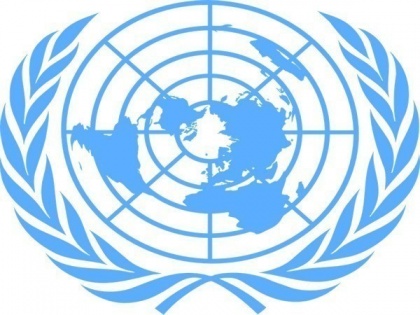Don't link environmental degradation with peace, security: India at UN
By ANI | Published: September 18, 2020 03:54 AM2020-09-18T03:54:49+5:302020-09-18T04:15:04+5:30
Warning against "securitisation" of environmental issues, India on Thursday said that linking environmental degradation to peace and security will not enhance the collective effort to address climate change issues.

Don't link environmental degradation with peace, security: India at UN
Warning against "securitisation" of environmental issues, India on Thursday said that linking environmental degradation to peace and security will not enhance the collective effort to address climate change issues.
In a statement at the UN Security Council High-Level open debate on 'Maintenance of international peace and security: Humtarian Effects of Environmental Degradation and Peace and Security', India said that environmental degradation can have humtarian impact or effect just as many other aspects of human activity have humtarian dimensions.
It stressed that should be a greater resolve to implement the committments and contributions undertaken under environmental agreements.
"Environmental degradation affects not just the ecosystem but also the people who depend and live on it. It is also a multi-dimensional issue. To begin with, it can be caused by those who live on it due to a range of inter-related factors, foremost amongst which is poverty and not necessarily greed. In many developing countries, such problems arise from issues related to people living at subsistence level," India said.
It stated that in many other cases, the perpetrators of environmental degradation may well be outside national boundaries while the people suffering are inside.
"Environmental degradation can have humtarian impact or effect just as many other aspects of human activity have humtarian dimensions. However, merely to link up everything related to environmental issues with peace and security does nothing to enhance our understanding of the problem; does nothing to help us address these issues in a mengful way, and does nothing to call out the real perpetrators and make them adhere to their commitments on environmental issues or help change behaviour of people at subsistence level," the statement said.
India noted there has been an increasing tendency both in the Security Council and outside to start discussing environmental issues with a certain disregard for the various important principles which govern environmental discussions, including climate change and biological diversity.
"What we need is a collective will to address such important issues multi-dimensionally without shirking our respective commitments under the various important conventions, inter alia, UN Convention to Combat Desertification, Convention on Biological Diversity, UN Framework Convention on Climate Change and Paris Agreement etc. What we need therefore is greater resolve to implement the commitments and contributions undertaken under environmental agreements instead of 'securitisation' of environmental issues," it said.
India remarked that it is a leading contributor to "climate action" and the country has reduced 38 million tonnes of carbon emissions annually over the past few years.
In the course of the last decade, around three million hectares of forest and tree cover has been added, which has enhanced the combined forest and tree cover to 24.56 per cent of the total geographical area of the country, it said, adding that India has taken a leadership role to protect the environment.
"Going forward, India aims to restore 26 million hectares of degraded and deforested land and achieve land-degradation neutrality by 2030. We have set additional targets of eliminating single-use plastic by 2022 and installing 450 GW of renewable energy by 2030," the statement said.
India stressed that every industry, including the private sector, civil society and the government can make more climate-friendly lifestyle choices to ease the transition to a sustainable lifestyle.
"Let us view environmental degradation as an opportunity to strengthen multilateralism and seek equitable and inclusive solutions to build a greener, cleaner and a sustainable world," it further said.
( With inputs from ANI )
Disclaimer: This post has been auto-published from an agency feed without any modifications to the text and has not been reviewed by an editor
Open in app